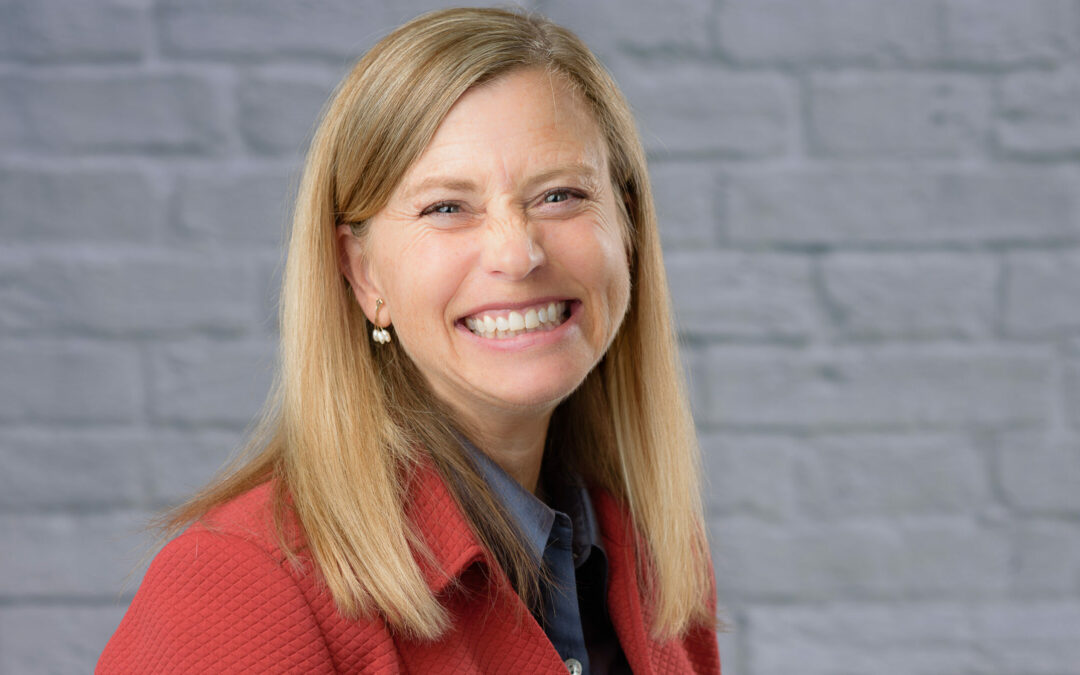Podcast: Play in new window | Download
Subscribe: Spotify | Email | RSS
In this week’s episode, Jenn Dewall talks to workplace conflict expert Carol Bowser about how leaders can get comfortable handling conflict. Most people would rather avoid conflict than manage it! However, part of leadership is learning to have difficult conversations, drive collaboration and get better results.
Meet Carol Bowser, JD – Workplace Conflict Expert
Carol Bowser, J.D. is a workplace conflict expert. After practicing Employment Law for several years, she realized that people gain more from working together to resolve workplace conflict than from going through a lawsuit. This insight led her to found Conflict Management Strategies.
Carol has discovered that conflict is a universal experience. Wherever there are people, there is bound to be conflict. Her mission is to teach leaders the skills to recognize and address conflict before it jeopardizes working relationships and affects the entire organization. With over 20 years of experience, she has identified common threads in workplace conflict and is committed to empowering individuals at all levels to enhance their conflict-resolution abilities.
Conflict Management is a Leadership Skill
As the episode opens, Jenn asks Carol why people are so unprepared to deal with conflict, and she explains:
“Well, I often say that I think that once you reach a certain age, there’s a belief that there’s a magic wand that all of a sudden that you have what I call kind of conflict resolution literacy, and you have financial literacy, and you have just how to navigate in the world literacy. Where it’s just supposed to be, well, it just happens, and it doesn’t just happen.
It is a skillset. And the more we talk about soft skill sets, the more I’m of two minds about that one. I recognize that it is a skill set. It’s not just thinking about it. It’s doing it.
And the people that do it well have a mastery of the basics. They go back to the basics, and they don’t take those basics for granted. If you look at any kind of professional as an athlete, they are masters of the basics in executing. And you just have to be able to practice, practice, practice.”
Why Do We Avoid Dealing with Conflict at Work?
Later, Jenn asks Carol why people try to avoid conflict. Carol shares:
“Because It’s a time suck. It’s an energy suck. And I’ll say particularly for leaders, I hear many different times, Hey, they’re grownups. They should just be able to figure it out. You know, why am I stepping in?
Because if I’m stepping in, then I’m doing their job, and I don’t have time to do their job, and if I’m doing their job, why do they have their job? So, I think it’s like two sides of the same coin. Some managers believe that it’s other people’s responsibility, but they’re, they know that you may have many different leaders. Leaders and maybe kind of subleaders who are advocating for themselves. And they really do believe there’s a way they will be able to do it.
And leaders, if that is happening, then you actually do need to step in and give some guidance on how you would like to see decisions resolved. Then, on the flip side, there are always power dynamics at work, and people are very wary about upsetting or expending social capital. So yeah, it’s a little bit more complicated than, you know, we just need to get over it and do it.
There’s a lot of talk about it, I think it came, if I was to do a little bit of an origin story search, I think the term psychological safety and Jenn, check me if your memory is or your experience is different, came from like a study from Google about what makes really high performing teams, and they talked about the ability to give criticism, to go into conflict, to share perspectives with the team that made it really great.
So in the zeitgeist, we talk a lot about psychological safety, but you know, a lot of people don’t feel safe at work because they’re concerned about ticking their boss off. And that’s scary. So whether or not that is a theoretical threat or an actual threat of being the bad boy or the bad girl, or the whiner or the whistleblower or that guy or that girl, or the rabble-rouser, the drama king or queen.
I mean, we all have opinions about people, and I think our opinions about people influence our approach to conflict.”
The Difference Between Argument and Conflict
Later in the episode, Carol explains that many people hear the word conflict and immediately think of having an argument. She notes there is a difference, saying,
“I say that I don’t like arguments because that is just people getting positional and undermining and stating their position over and over and over again, like with no resolution. I like conflict because conflict means something important is at stake. There’s an interest or a value, and you can work with helping people articulate their interests and values.
It gives you a little bit of a window, you know, to kind of work your way outta the, you know, the little trapped room of conflict, of trying to listen and learn what’s important to the other people and try to be able to articulate in a way that other people can hear what’s important to you. And I think if you just talk about arguments, arguments, arguments, then there’s something so emotionally unsatisfying of saying, well, we’re just going to have to agree to disagree. I think you can say we can agree that we have different experiences. We can agree we have different perspectives. We can agree that we may approach something differently.
However, when most people say they want to agree to disagree, they really don’t. That means that you’re going to leave it alone, and you’re not going to be emotionally or psychologically hung up on it. And you’re not going to start talking about what a “jackalope” the other person is because they don’t agree with your way of thinking or the way that you want them to act.
I have to say though, there are some “jackalopes” out there. I mean, it’s just, there are some people who, there are people who are difficult and there, and there’s also mental illness and, you know, addiction and a lot of heavy things that people are going through in their life. So they may not be at their best to be able to, to kind of engage in a conflict resolution process. And they, they may be stuck in argument because either they, they don’t have the bandwidth, they don’t know how, or there’s something else going on.”
Strategies for Conflict Management
In the episode, Carol provides the listeners with several actionable strategies for handling conflict in the workplace. You’ll have to listen to the episode to get them all, but one of our favorites was her advice about how to change the way you ask questions! She explains:
“Don’t say “why.” Okay, so this is another tool I learned from my mediator days. In the US culture, and again, this is kind of predominantly US culture, when people ask why. As a mediator and in conflict resolution, it is the rare exception that I would ask a question formatted with a why. Because “why” does one or two things.
It gets people who are very assertive to kind of get in your face about it and demonstrate their rationale, and it compels them to get more positional because they’re justifying, justifying, justifying why they took the position that they did.
At the same time, if people are retreating or avoiding, they’ll retreat and they’ll fall into silence. When I train new mediators, I will say it’s a little bit like a dog, but asking why can either be perceived an aggressive move. And if you’ve got a dog and they sense aggression, they’ll be aggressive back. But they also, they may start submitting and you really don’t want that at all…
…Most every question can be formatted in the what. Tell me what. Not tell me what you were thinking, but tell me what framework you were using. Tell me what of the various priorities you put one in front of the other, tell me things that you considered but decided not to bring forward.
As a leader, you want to know what people’s thinking is, what their paradigms are, and for them to be, be successful. They also kind of need to know what your analytical framework or frameworks are. Because if you want them to be autonomous, they still have to defend their decision-making to you, and you kind of have to defend their decision-making to others.
But being able to set aside the whys and ask a lot more curiosity questions to kind of really understand where people are coming from. But again, make sure it’s not interrogating. Make sure that you balance how many questions you’re asking versus giving them the time and opportunity to speak.”
Where to Find More from Carol Bowser
Be sure to listen to the full episode for more tips for effective conflict management! If you would like to learn more about Carol and her work, click on the links below!
- Connect with Carol on LinkedIn
- Follow her on Facebook or Twitter
- Visit her website: conflictmanagementstrategies.com





